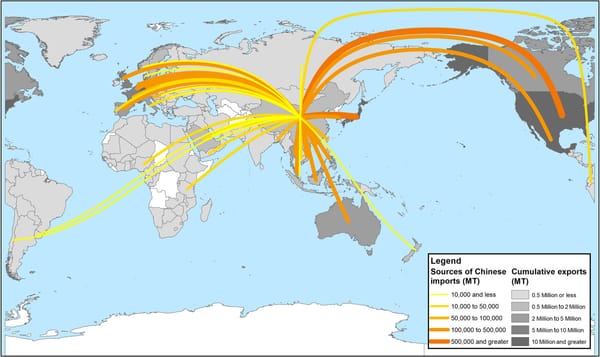The cost of wasting meat
Eating meat is bad, here are ways to minimize your waste without going vegetarian.

Consuming meat is bad for the environment. Meat production produces huge amounts of greenhouse gases, consumes millions of liters of water and takes up monstrous quantities of land. Yep, we’ve heard it over and over again. However, have you ever considered the impact of actually throwing away the meat that is not eaten?
Food waste represents a huge problem, with 7.3 million tons of food wasted by UK households every year. In fact, a third of food purchased in the UK is thrown away. Of that amount, households are wasting around 570,000 tons of fresh meat each year which is equivalent to about 50 million chickens, 1.5 million pigs or 100,000 beef cattle. Globally it’s close to 12 billion animals, a huge amount of living creatures born to be killed and wasted.
Producing, processing and transporting food involves using huge amounts of land, water, and energy, which all contribute to climate change. Most animals reared for food in the UK are no longer grazed on grass or, in the case of pigs and poultry, fed food waste. Instead, over recent decades a highly industrial system has emerged, with animals being housed in large numbers and fed on feed shipped in from all over the globe. This feed takes huge amounts of land to grow, it consists of a third of all crops grown globally, and in countries such as Brazil and Paraguay, forests are cut down and rural communities thrown off the land to make way for them.
One quarter of global freshwater use relates to producing meat and dairy, which is likely to increase if production continues to rise. Livestock is responsible for nearly 15% of all global greenhouse gas emissions contributing to global climate change. Beef, in particular, produces 25kg of CO2 per kg of meat.
From this, it is clear that wasting food and especially meat uses up valuable resources and is terribly damaging for the environment.
So, what can we do to help? Some argue that veganism is the only way forward. A study last year showed that if all Americans substituted beans for beef, the country would achieve over half of the reduction in greenhouse gas emission agreed by the United States in 2008. This would also free up 42% of the country’s crop land. Nevertheless, not eating any meat is not the only answer. If you don’t want to completely give it up, a simple contribution would be to waste less of the meat you buy. That in itself will help prevent resources being used for nothing.
There are simple steps you can take to make a difference:
- Find out about different date labels. Did you know you can freeze food right up to 24 hours before the use by date?
- Eat less but better quality meat, and avoid beef, so that there’s less meat to waste and what you do use will be kinder to the planet.
- Plan meals, get your portions right and make the most of the food you buy.
- Store your food correctly to keep it fresh for longer.
- Make last night’s leftovers today’s feast.
- Try making one day a week vegan or vegetarian, and try limiting the amount of red meat you consume to just one portion a week, the planet will thank you!







